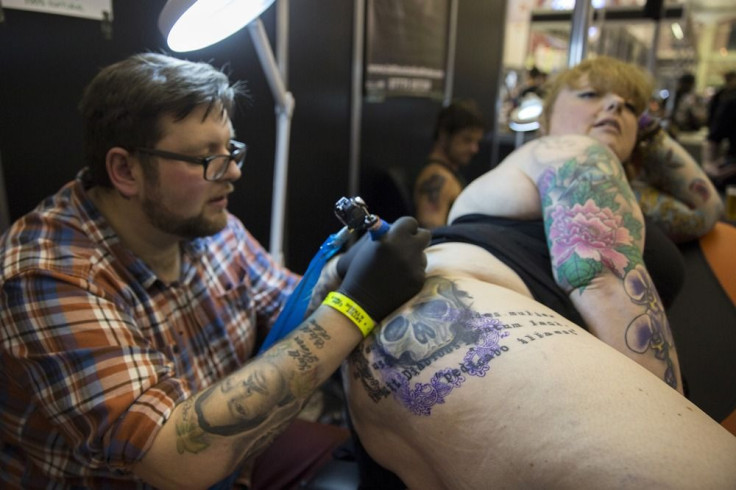Tattoo Ink Allergies Are Found To Be From Red Ink, Study Says

A new study shows that 1 in every 10 people who have tattoos experience skin problems after getting them. Skin problems include redness and inflammation, infection and swelling and researchers found that these complications tend to linger for several years after getting inked.
Live Science reports that according to the co-author of the Wednesday published study and New York dermatologist, Marie Leger, she noticed how a lot of people come into her clinic reporting issues with tattoos. After discussing with colleagues and friends, she began to wonder how rampant tattoo ink issues were and realised there were more stories about tattoo complications.
To understand the concerns surrounding tattoos, Leger and her team randomly picked 300 people from New York’s Central Park who had tattoos. They then asked 149 men and 151 women about their tattoos and if any reactions were present after getting inked that are not normally part of the healing process.
Around 10 percent of these people confirmed they had experienced complications such as “itchy, raised, scaly and/or filled with oedema”. Out of those people who complained, six out of 10 had chronic problems. While these people had dealt with itching and swelling for many years, only a few had consulted their doctor, according to the study.
NBC News reports that Leger believes long-term complications from tattoos had something to do with the type of ink used. Specifically, she believes that skin allergies from tattoos are likely a reaction from a red dye found in the ink. In the study performed in Central Park, results show that most of the participants experienced long-term reactions from tattoo with a red dye.
Red dye is linked with skin rashes more than other tattoo ink colours and this finding was confirmed by the president of Alliance of Professional Tattooists, Mike Martin. This finding came as no surprise for Martin and he said “some folks' bodies do not like red pigments."
The research also found that people who face tattoo complications often do not get medical treatment. Leger said that there are prescription steroid preparations that can help rashes subside.
To report problems or leave feedback on this article, email: wendylemeric@gmail.com.





















